The Indigenous Advisory Group (IAG) provides strategic advice on Aboriginal and Torres Strait Islander health and health research issues.
The joint National Health and Medical Research Council (NHMRC) and Medical Research Future Fund (MRFF) committee advises NHMRC and its Chief Executive Officer (CEO), the Australian Medical Research Advisory Board (AMRAB), and the CEO of the Health & Medical Research Office (HMRO).
HMRO is responsible for the MRFF and is part of the Department of Health, Disability and Ageing.
IAG advises on:
- Strategies for improving Aboriginal and Torres Strait Islander health through research, including (but not limited to) advising on:
- NHMRC and MRFF road maps and implementation plans
- Priorities for priority-driven research funding.
- Significant issues of relevance to health and wellbeing of Aboriginal and Torres Strait Islander peoples and communities
- Opportunities for Indigenous-led research practice and governance, including valuing and promoting Aboriginal and Torres Strait Islander knowledge and connections to community and Country
- Support for Aboriginal and/or Torres Strait Islander health researchers, including capacity and capability building for early to mid-career researchers
- Any other matter referred to it by the NHMRC CEO and/or HMRO CEO.
Membership
IAG is established as a working committee under Section 39 of the NHMRC Act 1992. The committee members for the 2024-2027 triennium are below.
Committee members
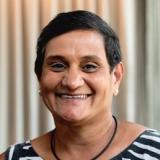
Chair,
Professor
Yvette
Roe
Professor Yvette Roe is a proud Njikena Jawuru woman from the West Kimberley, WA and the Director of the Molly Wardaguga Institute for First Nations Birth Rights at Charles Darwin University. Professor Roe is an emerging nationally and internationally known leader on First Nations health with novel ideas on ensuring that First Nations Australia and is leading the research that those sustainable impacts improve the health and wellbeing of Aboriginal and Torres Strait Islander peoples. Her work is supported by more than 30 years experience working in the First Nations policy and Aboriginal community-controlled health sector.
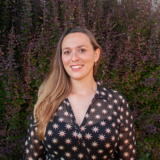
Dr
Sarah
Bourke
Dr Sarah Bourke (she/her) is a medical anthropologist and Research Fellow with Yardhura Walani, the National Centre for Aboriginal and Torres Strait Islander Wellbeing Research at the Australian National University. She is a Gamilaroi, Jaru, Gidja woman born and raised on Ngunnawal and Ngambri Country in Canberra. Dr Bourke has expertise in Indigenous health and wellbeing research and policy, decolonising and Indigenous research methodologies, and qualitative methods. Her current research explores what it means to belong, be well, and live a ‘good life’ from Aboriginal and Torres Strait Islander and other Indigenous perspectives.
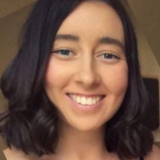
Dr
Brooke
Conley
Dr Brooke Conley, a proud Ngiyampaa woman, is a Physiotherapist and Peeneeyt Thanampool Indigenous Postdoctoral Fellow at The University of Melbourne. She has research expertise in musculoskeletal conditions with a particular focus on improving outcomes and care for Aboriginal and Torres Strait Islander peoples.

Associate Professor
Tuguy
Esgin
Member-in-Common with Industry, Philanthropy and Commercialisation Committee
Associate Professor Tuguy Esgin is the Dean of Indigenous Engagement at the Faculty of Business and Law at Curtin University. A Noongar/Yamatji scholar, he specialises in Indigenous governance, economic development, and decolonising business practices. His research focuses on embedding Indigenous principles into corporate and policy frameworks, fostering social impact, and enhancing commercialisation pathways that align with Indigenous knowledge systems. Associate Professor Esgin has led major interdisciplinary projects, including securing $1.5 million in NHMRC funding to explore radar-based arterial defibrillation measurement. His role on the NHMRC Indigenous Advisory Group and Industry, Philanthropy, and Commercialisation Committee aligns with his commitment to driving sustainable, socially responsible innovation and enhancing Indigenous participation in health and business sectors.
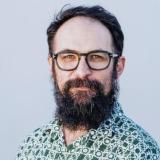
Mr
Adam
Heterick
Member-in-Common with Consumer Advisory Group
Adam Heterick is a Wiradjuri man, originally from Central NSW, and is Australia’s first Indigenous bioinformatician. He works at the intersection of genomics, Indigenous Data Sovereignty, and pharmacogenomics—the study of how genetics influence responses to medications. With a Master's degree in Bioinformatics from Edith Cowan University, he is dedicated to ensuring that Indigenous communities have ownership over their genetic data and benefit from cutting-edge scientific research.
Adam is a Bioinformatics Officer at Black Ochre Data Labs (The Kids Research Institute, Australia) and the National Centre for Indigenous Genomics (Australian National University). His work focuses on helping Indigenous communities develop ethical, culturally informed ways to govern and use genomic data. He is also involved in pharmacogenomics research, studying how genetic differences affect drug metabolism in Indigenous populations to improve health outcomes.
Additionally, Adam contributes to the Marine Biomass Innovation Project, where he helps develop data systems and governance processes for the Mi’kmaw people of Western Newfoundland, ensuring Indigenous leadership in research and that Indigenous communities have control over their data and benefit from research outcomes.
Previously, he worked with the Queensland Aboriginal and Islander Health Council (QAIHC), supporting Indigenous healthcare providers with data-driven solutions.
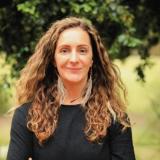
Associate Professor
Michelle
Kennedy
Member-in-Common with Australian Health Ethics Committee
Michelle is a Wiradjuri woman. As well as advising on Lowitja Institute’s research and knowledge translation, Michelle is an Associate Professor at the University of Newcastle. Michelle brings 20 years experience working with Aboriginal and Torres Strait Islander communities across community development, social work and health research. Michelle is leading national research in the areas of tobacco control, Aboriginal and Torres Strait Islander health research ethics and Indigenous methodologies.
Michelle holds a PhD in Aboriginal Health, a Master in Social Science (Social Work) and a Bachelor of Arts (hons) from the University of Newcastle.
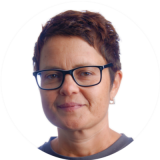
Associate Professor
Veronica
Matthews
Member-in-Common with Public Health and Health Systems Committee
Dr Veronica Matthews (Quandamooka), Principal Research Fellow, is based at the University Centre for Rural Health, The University of Sydney in Lismore. She facilitates community-led research, embedding First Nations knowledges and rights as the original custodians to revitalise holistic health care systems centred on Country. She has a background in ecology, environmental toxicology and primary health care systems and feels extremely privileged to be able to blend her passions of healthy Country and healthy mob. She co-leads the Indigenous Knowledges theme of the Healthy Environments and Lives (HEAL) National Research Network.
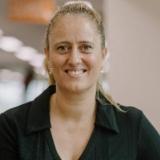
Dr
Julee
McDonagh
Dr Julee McDonagh is a Registered Nurse (RN, PhD) with more than 10 years of clinical experience in cardiology settings and a Senior Research Fellow (NHMRC Emerging Leader) in the Centre for Chronic and Complex Care Research, a joint clinical research centre between the University of Wollongong and Western Sydney Local Health District. She is also a proud descendant of the Cabrogal clan of the Darug First Nations people. Dr McDonagh’s research program focuses on the intersection of heart failure, frailty, cardiovascular disease, aging, and multimorbidity. Dr McDonagh is an active member of the Australian College of Nursing, the Congress of Aboriginal and Torres Strait Islander Nurses and Midwives, the Emerging Leader Committee of the Australian Cardiovascular Alliance and the Executive Committee of the Cardiovascular Nursing Council of the Cardiovascular Society of ANZ.
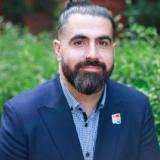
Mr
Michael
Newman
Michael is a Galari Gibir (Lachlan River man) of the Wiradjuri Nation, the people of the Three Rivers. Michael’s family is from Condobolin but he was born in Orange and enjoys familial and cultural links to the Central West, Capital Country and Riverina-Murray areas of New South Wales.
Michael was exposed to Aboriginal self-determination and governance from his younger teens, being a part of the first Young Aboriginal People’s Regional Roundtable (YAPRR); and since then, over 13 years, he has built a career in the New South Wales Public Service, working with Education, Communities and Justice, NSW Police Force, Aboriginal Affairs, and TAFE NSW, before transitioning to the community controlled sector.
For the past 4 years, Michael was the Chief Operations Officer with Orange Aboriginal Medical Service (OAMS) where his main portfolios were the divisions of Diversified Services and Corporate Business Partners, which enabled the organisation’s growth in funding, workforce, and services delivered to community.
Michael is currently Deputy Chair and long-serving Director of Orange Local Aboriginal Land Council (OLALC); sits on the TAFE NSW Western Aboriginal Advisory Committee, Ministerial Aboriginal Partnership Group (Department of Communities and Justice), and the Aboriginal-led Commissioning Steering Committee (AbSec); and is a non-executive Director of Western Health Alliance Limited (WHAL) trading as Western Primary Health Network (PHN).
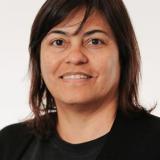
Associate Professor
Odette
Pearson
Member-in-Common with Research Committee
Professor Odette Pearson is a Kuku Yalanji/Torres Strait Islander woman, Co-Leading the Wardliparingga Aboriginal Health Equity Theme at the South Australian Health and Medical Research Institute (SAHMRI) and holds the title of Adjunct Professor with the School of Medicine at the University of Adelaide. Professor Pearson research experience is in primary health care workforce and systems and their linkages with health and social services, conceptual development of Aboriginal specific well-being frameworks and indicators, and using social and epidemiological research to develop policy for prevention and health management. With strong community and cross sector engagement her research activity focuses on how to achieve equity through improvements in health and social system responses to better meet the needs of Aboriginal and Torres Strait Islander peoples.
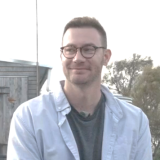
Dr
Jacob
Prehn
Associate Professor Jacob Prehn (PhD; Worimi) is trained as a Sociologist and Social Work academic. He currently serves as Director of Research, Evaluation, and Data Governance with the Treaty Authority (Victoria). Jacob is an executive member of the Australian Indigenous Data Sovereignty collective Maiam nayri Wingara, and a member of the Global Indigenous Data Alliance (GIDA). His scholarship primarily focuses on Indigenous Data Sovereignty and Governance; Indigenous men, masculinities, and fatherhood; and social inequality.
Jacob is on a leave of absence from the University of Tasmania and remains an Adjunct Associate Professor. There he served as the Associate Dean Indigenous in the College of Arts, Law, and Education. Jacob is also a qualified Social Worker and Aboriginal Health Worker with extensive practice experience.

Professor
Maree
Toombs
As a proud Aboriginal researcher and academic, Professor Toombs currently serves as Deputy Dean Indigenous at The University of New South Wales. Professor Toombs' career has been dedicated to improving health outcomes for Aboriginal and Torres Strait Islander peoples through research, leadership, and community engagement.
Professor Toombs' research focuses on developing culturally appropriate healthcare models, particularly in mental health and suicide prevention. She has led numerous groundbreaking projects, including the development of Indigenous-specific suicide intervention programs (I-ASIST) and the cultural validation of mental health diagnostic tools. Recently, her work has expanded into genomic medicine and respiratory health, always maintaining a strong emphasis on community-led research design.
Beyond the research, Professor Toombs is passionate about mentoring the next generation of Indigenous researchers and healthcare professionals. She is dedicated to advocating for Indigenous-led solutions in healthcare, believing that lasting positive change comes through genuine partnership with our communities and respect for Indigenous knowledge systems.
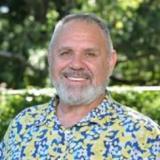
Professor
James
Ward
Professor James Ward is a Pitjantjatjara and Narungga man, an infectious diseases epidemiologist and a national leader in Aboriginal and Torres Strait Islander research. He is currently the Director of the Poche Centre for Indigenous Health at The University of Queensland.
Holding various roles over the last 25 years in Aboriginal public health policy for both government and non-government organisations, in urban regional and remote communities he has built a national program of research in the epidemiology and prevention of infectious diseases, with a particular focus on STIs, HIV and viral hepatitis in Aboriginal and Torres Strait Islander communities.
Professor Ward has previously worked at the Kirby Institute, University of New South Wales, Baker IDI in Alice Springs and the South Australian Health and Medical Research Institute (SAHMRI). He has served on numerous national and international committees including the Communicable Diseases Network of Australia, the Australian National Council on Alcohol and Drugs, the CDNA COVID-19 Working Group and the Aboriginal and Torres Strait Islander COVID-19 Taskforce. He has over 160 publications and leads several large scale public health and infectious diseases studies.